Follow these precautions to avoid the most toxic garden center items when you visit your nursery.
1) PVC Garden Hoses
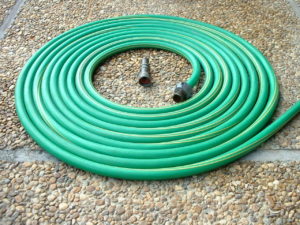 Tests conducted by the consumer testing group Healthy Stuff showed that garden hoses made from polyvinyl chloride (PVC) plastic contain phthalates and are among the most toxic garden center items you’ll find.
Tests conducted by the consumer testing group Healthy Stuff showed that garden hoses made from polyvinyl chloride (PVC) plastic contain phthalates and are among the most toxic garden center items you’ll find.
Phthalates help keep plastic hoses soft and malleable so they can easily bend and twist, but they’re also linked to hormone disruption, genital defects in boys, and breast cancer.
⇒ What you definitely don’t want to do: Drink out of a PVC hose or use it to fill up the dog’s bowl unless you’ve let it run for several minutes. Better yet, replace your plastic hose with one made from natural rubber.
2) Cocoa Bean Mulch
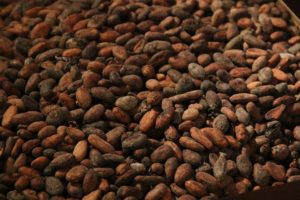 Cocoa bean mulch isn’t toxic to people, but if you have a pet—especially a dog—beware.
Cocoa bean mulch isn’t toxic to people, but if you have a pet—especially a dog—beware.
This mulch comes from the hulls or shells of cocoa beans and contains theobromine, a chemical that can cause hyperactivity, vomiting, diarrhea, and seizures in dogs.
Because it smells like chocolate, your pet might find it irresistible. But it can be as poisonous to your pooch as a chocolate candy bar.
⇒ Use shredded pine bark or leaf mulch instead.
3) Fertilizer and Plant Food
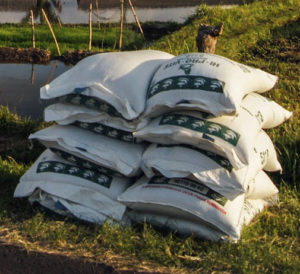 The nitrates in fertilizer and plant food are what make these products dangerous; they probably top the list of most toxic garden center items.
The nitrates in fertilizer and plant food are what make these products dangerous; they probably top the list of most toxic garden center items.
Nitrates lower the ability of red blood cells to carry and delivery oxygen.
According to theAmerican Association of Poison Control Centers, there were nearly 5,000 cases of poisoning from indoor household plant foods, outdoor plant foods, and other fertilizers in 2014. (The majority of cases were accidental poisonings in children under 5 years of age.)
⇒ A better choice? Use organic compost to build up the soil instead. If you must use a commercial fertilizer, keep it out of the reach of children and pets, apply the minimum amount recommended, and wear gloves and a face mask. Slow-release fertilizers will minimize their environmental impact, too.
4) Kneeling Pads
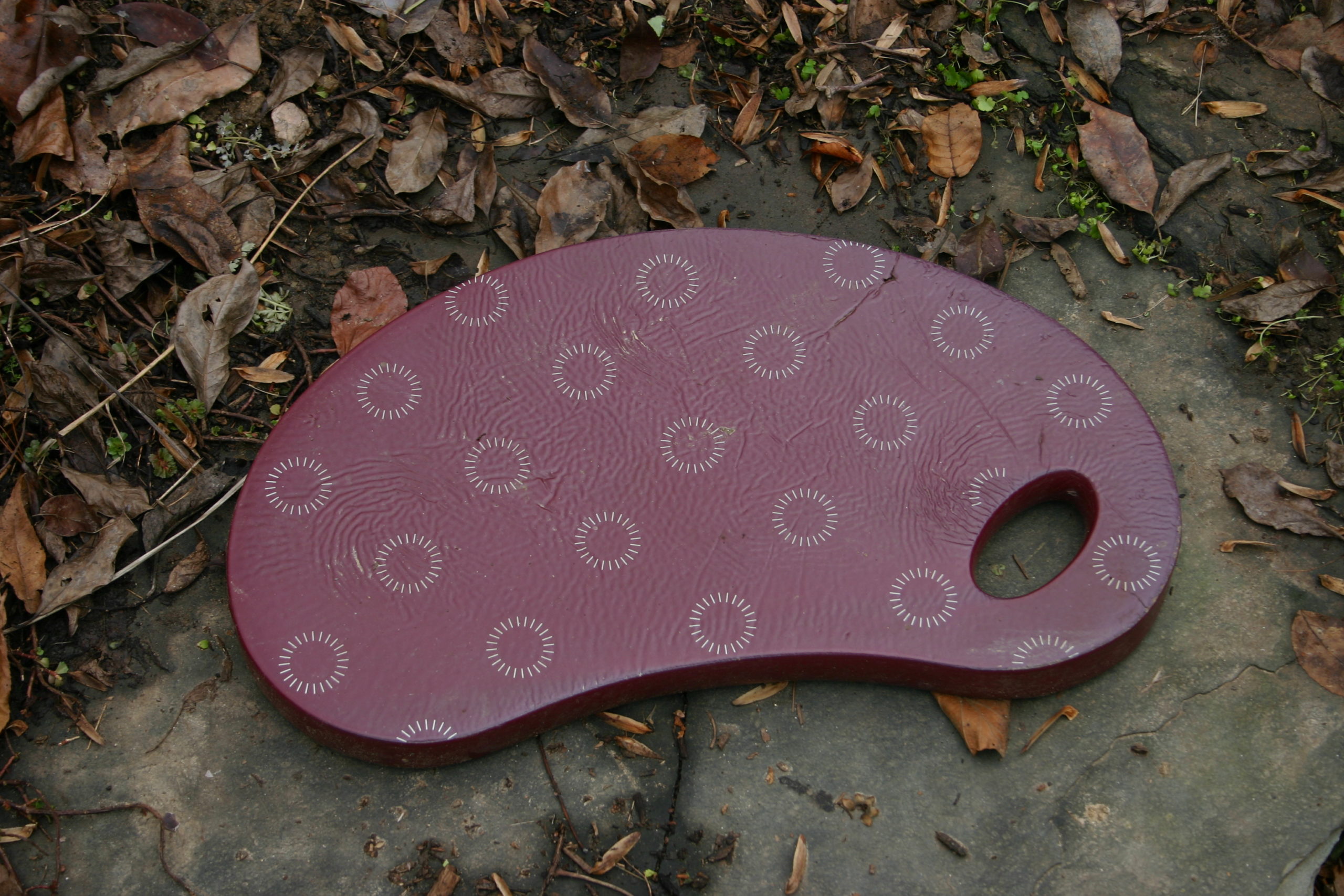 In addition to garden hoses and gloves, HealthyStuff.org also tested 13 kneeling pads.
In addition to garden hoses and gloves, HealthyStuff.org also tested 13 kneeling pads.
Again, the plastic pads turned up positive for a host of toxic chemicals. Said research director Jeff Gearhart, “Even if you are an organic gardener, and doing everything you can to avoid pesticides and fertilizers, you still may be introducing hazardous substances into your soil by using these products.”
⇒ The good news, he said, is that healthier choices are available. For example, a low wooden stool offers a safer and more comfortable alternative to a plastic kneeling pad.
5) Garden Gloves
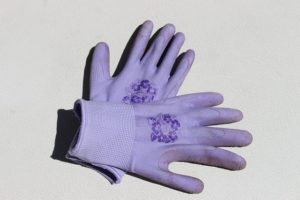 Like garden hoses, garden gloves may contain toxic components.
Like garden hoses, garden gloves may contain toxic components.
HealthyStuff.org tested 53 garden gloves for lead, chlorine, bromine, cadmium, phthalates, and bisphenol A (BPA).
The group found that somewhat more than 70 percent of products analyzed contained chemical levels of “high concern.”
⇒ Replace plastic gloves with heavy-duty cotton, leather or rubber gloves. Or, try the latex gloves you use for washing dishes, which offer the added benefit of protecting your forearms if you’re pruning rose bushes or other thorny plants.
6) Herbicides
 These chemicals were formulated specifically to kill weeds, but their impact isn’t limited to plants.
These chemicals were formulated specifically to kill weeds, but their impact isn’t limited to plants.
When they run off in rainwater or when you water your lawn, they wash into streams, lakes and rivers, where they kill fish.
They can be toxic to people, too. A Swedish study linked the herbicide glyphosate, commonly known as Roundup, to non-Hodgkin’s lymphoma cancer, while Texas A&M University researchers found that “unfortunately, whatever is lethal to a pest or weed will usually cause illness in human adults and even more severe symptoms in children and pets.”
⇒ Use nontoxic mulch to suppress weeds, weed by hand regularly to keep weeds under control, and consider replacing your lawn with leafy ground covers that aren’t as susceptible to weeds as grass is.
7) Lead Garden Ornaments
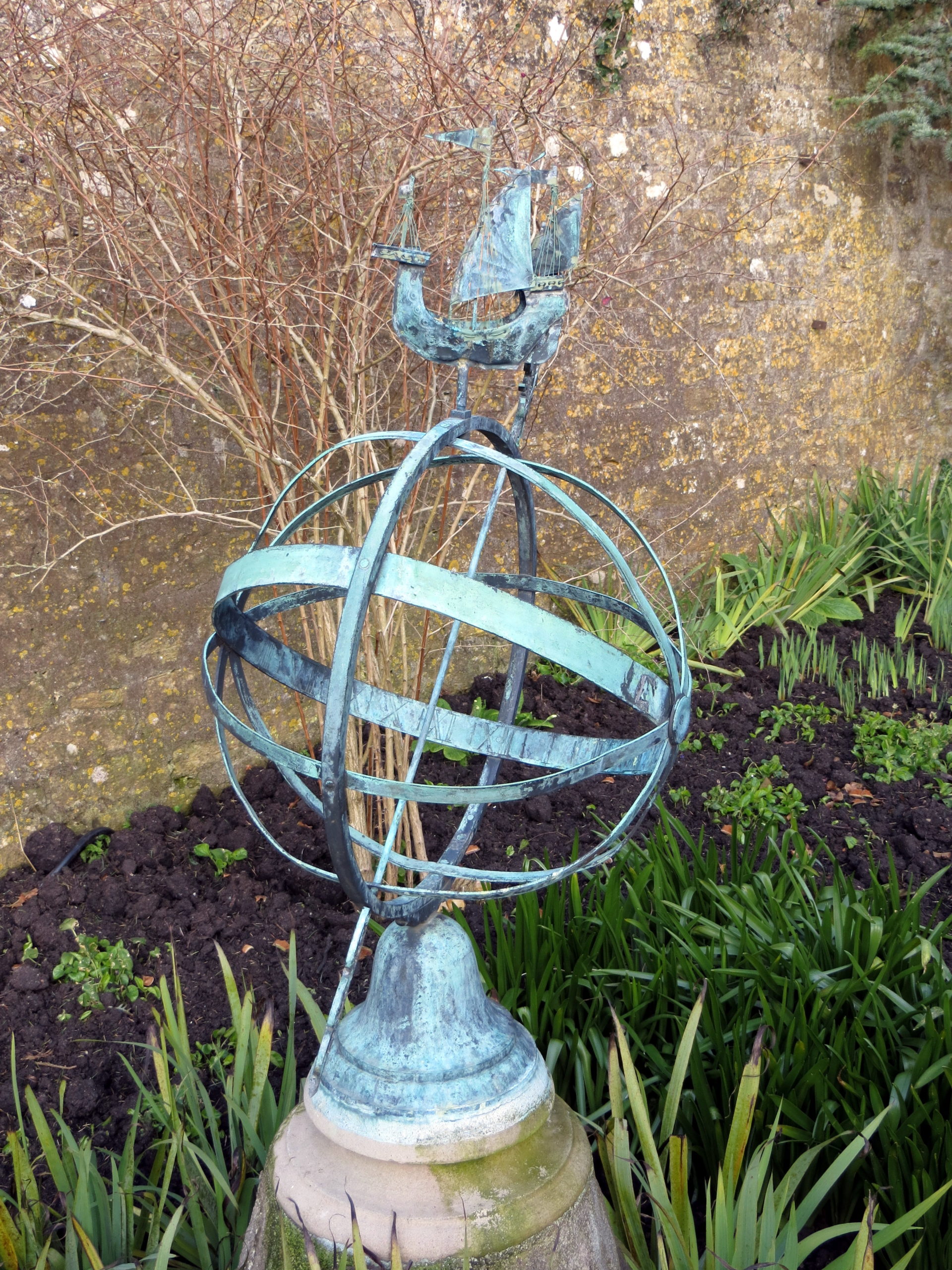 Lead is a potent neurotoxin that can cause learning disabilities, nervous system disorders, nausea, anemia, and seizures.
Lead is a potent neurotoxin that can cause learning disabilities, nervous system disorders, nausea, anemia, and seizures.
Though lead poisoning among kids garners the most headlines, adults can succumb to lead poisoning as well if exposure is repeated and intense enough.
Lead garden decorations have been made for centuries; many are still sold in antique stores. At garden centers, you may find lead-based hanging balls, ornaments or mobiles.
⇒ Choose tempered glass balls, wood carvings, cement or marble statuary, terra cotta, or steel instead.
8) Brass Faucets and Hose Fixtures
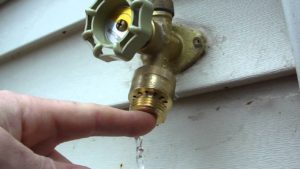 In addition to garden ornaments, lead lurks in brass faucets and fixtures.
In addition to garden ornaments, lead lurks in brass faucets and fixtures.
Faucets in particular have a tendency to chip, so you could end up with lead dust on your skin or in your soil.
⇒ Replace brass faucets with copper, and when buying a new hose, choose one whose connector tips are made of steel or aluminum, not brass.
9) Pesticides and Insecticides
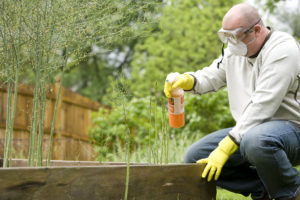 This group of chemicals includes pyrethroids, which attack an insect’s nervous system and cause it to die.
This group of chemicals includes pyrethroids, which attack an insect’s nervous system and cause it to die.
Some pyrethroids imitate the hormone estrogen and may contribute to breast cancer, reports Scientific American.
AmericanPregnancy.org warns pregnant women to avoid contact with any pesticides or insecticides especially during the first trimester, when a baby’s nervous system is rapidly developing.
⇒ Instead, try companion planting to ward off pesky bugs. A spray made from crushed garlic, liquid dish soap, and water is also effective against a wide range of insects, including ants, aphids, caterpillars, beetles, whitefly, and imported cabbage worm.
10) Shredded Tire Mulch
 It’s a good idea to recycle old tires so they don’t end up in a ditch or landfill.
It’s a good idea to recycle old tires so they don’t end up in a ditch or landfill.
But shredding them into garden mulch? That’s actually a terrible idea.
The rubber in tires is treated with heavy metals, like cadmium, chromium, molybdenum and polyaromatic hydrocarbons (PAHs).
These toxic chemicals can leach into your garden soil and accumulate in plant roots, leaves, and fruit. Plus, the same leachates can run off into streams and water systems. “Research has shown that entire aquatic communities are injured or killed when exposed to these chemicals,” reports FineGardening.com.
⇒ Again, shredded pine bark or leaf mulch are safer, healthier options.
Country Living! I originally wrote this article for Country Living; you can find it here. While you’re there, check out their many other useful tips for green living.


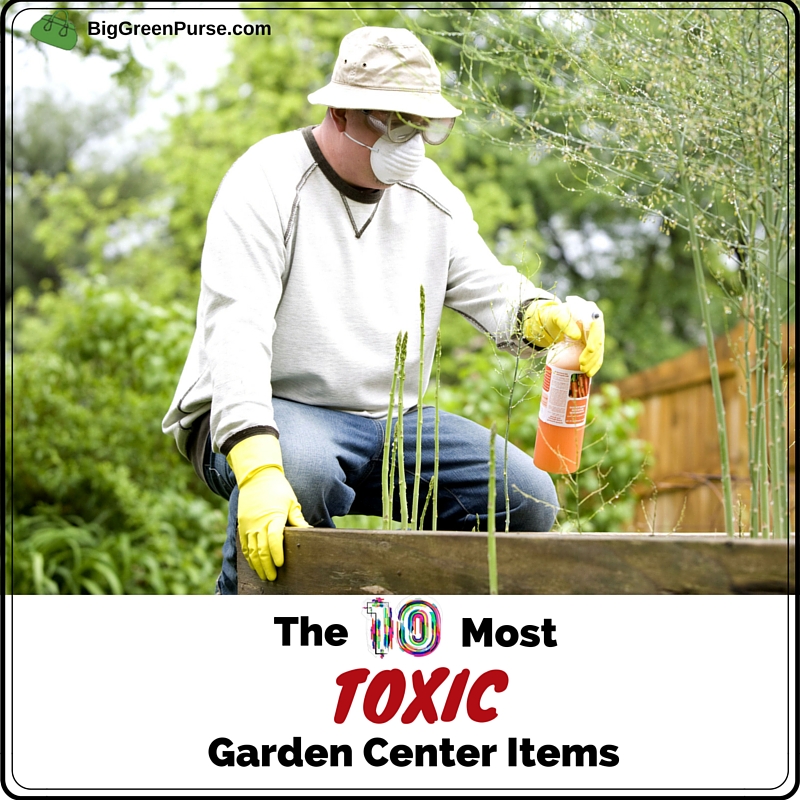
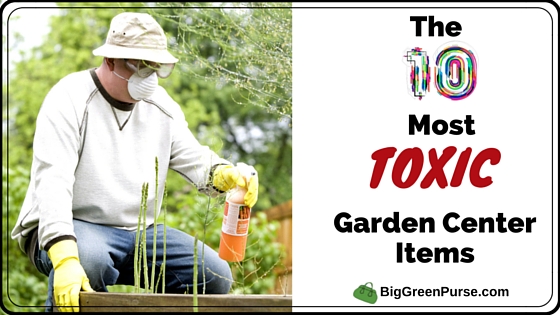

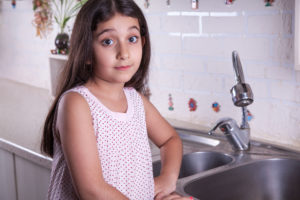
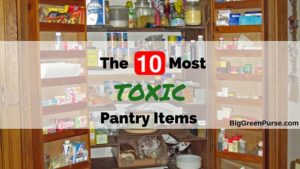
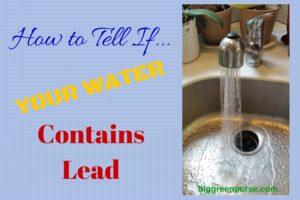
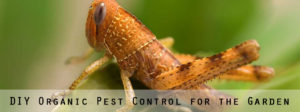
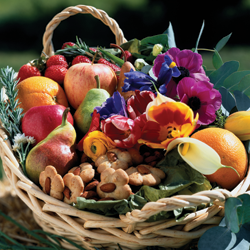
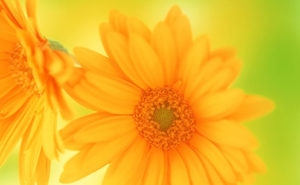


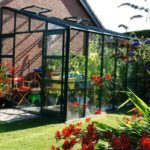
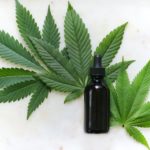
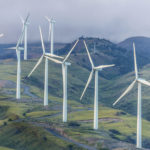
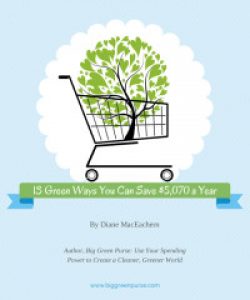


2 thoughts on “The 10 Most Toxic Items at the Garden Center”
I Just hate herbicides. I can’t understand how many people can put their own children at risk. I learned a lot from my kids, since they were the ones that spend the most time outside playing in the yard. I try to teach them that most weeds are fine, and that people don’t need a perfect looking lawn.
You are so right. I think most people think herbicides are safe because they are so easily available. Organic gardening is much healthier!